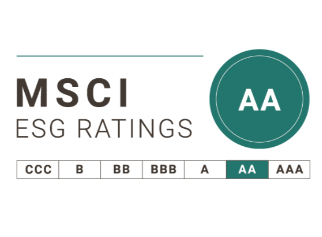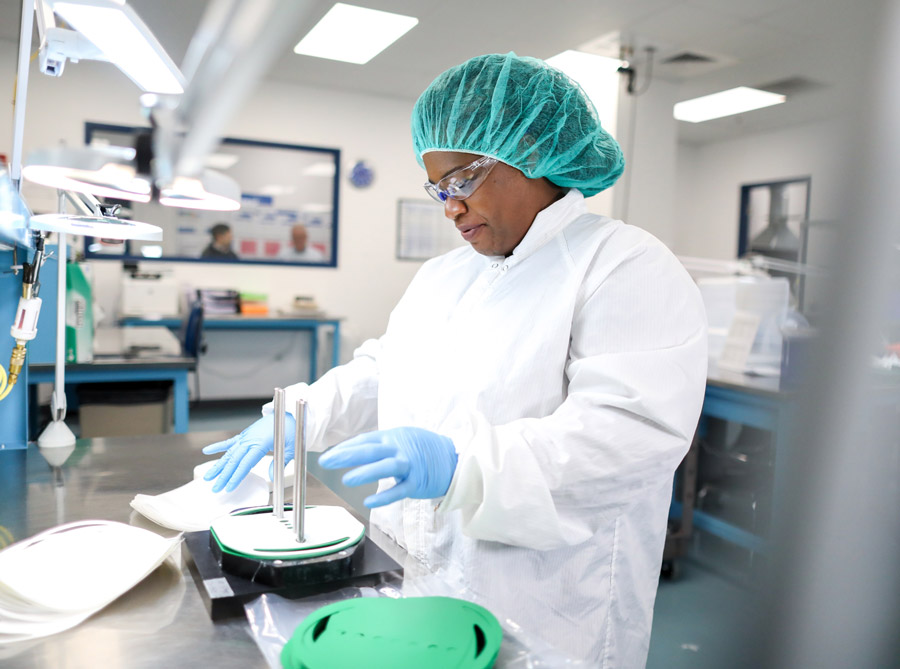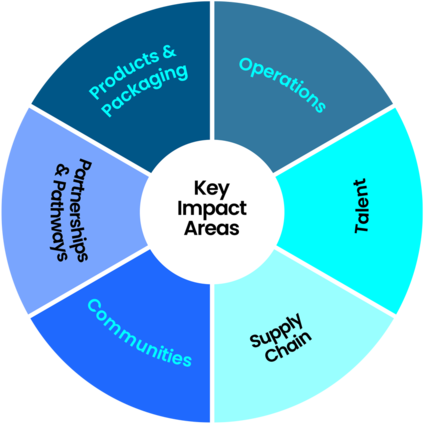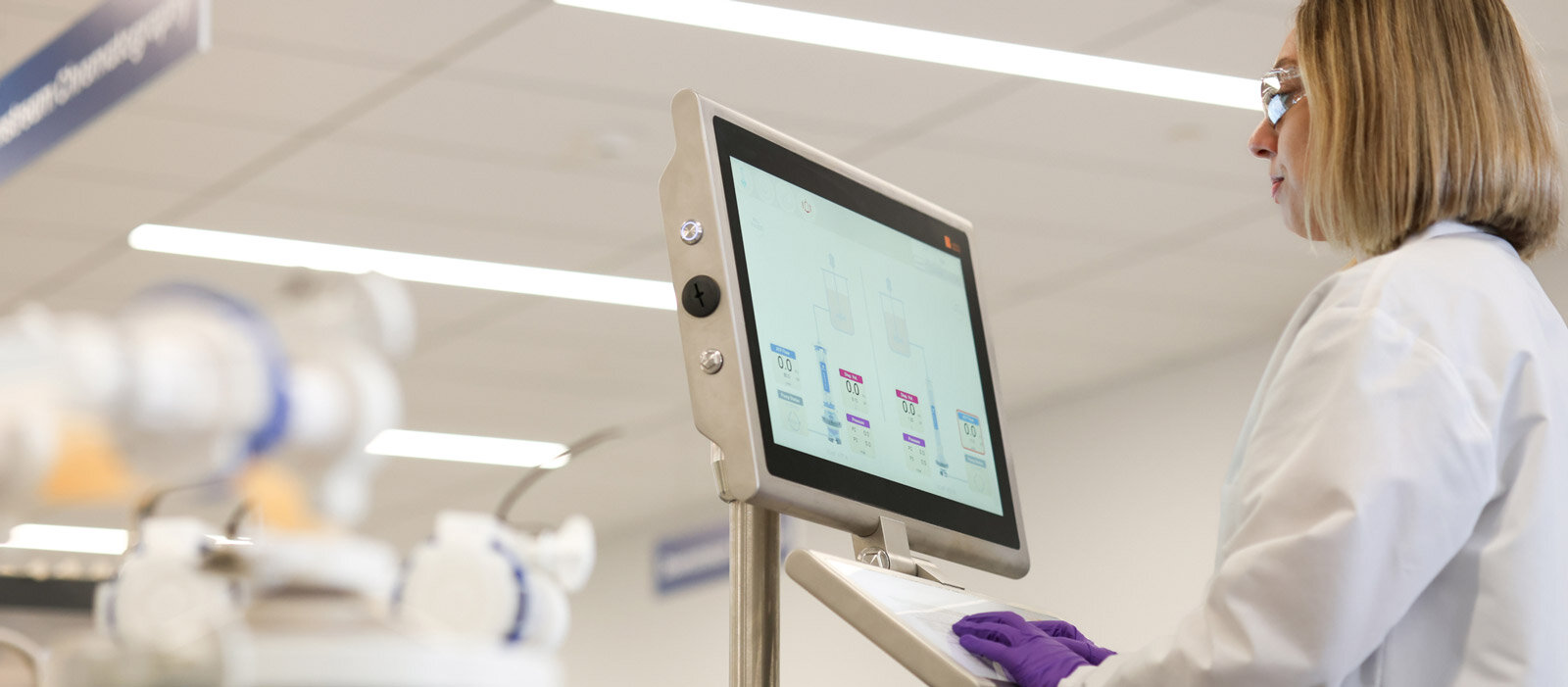Sustainability

MAKING AN IMPACT
At Repligen, sustainability is a strategic priority that impacts all aspects of our organization. Through a balanced approach that blends stakeholder engagement, employee empowerment and strategic investments, we have committed to driving positive impacts across environmental, social and governance topics that are material to our business.
Perspectives on Progress
Our 2024 Sustainability Report, Perspectives on Progress, illustrates our commitment to sustainable practices, accountability, and building long-term business value.
2024 Impact Highlights
Committed to Customers
Opened our new customer-focused Repligen Training and Innovation Center (RTIC) in Waltham, MA, a dedicated space that showcases our bioprocessing technologies and includes product exhibits, purpose-built demo areas and technical training space.
Winning with Waste Reduction
Despite business growth, and with the help of RPS, we reduced total waste generation by 25% and total waste intensity by 33% compared to 2023.
100% Renewable Electricity
Powered 100% of our 18 manufacturing sites with 100% renewable electricity (up from 13), representing 100% of our total global consumption (up from 88%) and 75% of total emissions (up from 72%).
Advancing Scope 3
Expanded our Scope 3 emissions inventory by including partial data sets for our two remaining material categories, Use of Sold Products (category 11) and End-of-Life Treatment of Sold Products (category 12), for the first time in 2024. Both data sets are for select products only and are a hybrid of primary data and informed estimates.
Focus on Human Rights
Successfully completed the UNGC Network USA Business and Human Rights Accelerator program, a six-month commitment to remote and in-person learning designed to help companies embed the UN Guiding Principles into their operations.
Leading with Low Risk
Maintained an MSCI AA “Leader” rating1 in the Health Care Equipment and Supplies group and rated Low Risk by Morningstar Sustainalytics2 in the Pharmaceuticals Industry and Laboratory Equipment and Services sub-industry.
Transparency Through EcoVadis
Expanded our presence within the EcoVadis supplier rating universe to include six manufacturing sites. We earned one gold medal (score of 75), two silver medals (scores of 73 and 69) and three bronze medals (score of 64). We are also working to synchronize site assessments to reduce reporting burdens and eliminate redundant processes.
Strengthening with CDP
Submitted our second CDP Climate Survey response and maintained an Awareness rating on par with Global, North American, and Medical equipment and supplies sector average ratings.
“At Repligen, we take a pragmatic approach to advancing our sustainability-related ambitions. To us, continuous improvement is sustainability and sustainability is business resilience.”
Olivier Loeillot
President and Chief Executive Officer


Repligen recognized on “America’s Most Responsible Companies 2025”
December 2024 distinction by Newsweek and Statista.

Repligen recognized on “World’s Greenest Companies 2025”
May 2025 distinction by Newsweek and Plant-A Insights Group.

Repligen featured in “Beyond The Guide Deepdive: Pharma & Life Sciences Supply Chain”
May 2025 case study resource guide published by the SPP.

In 2024, Repligen received a rating of AA (on a scale of AAA-CCC) in the MSCI ESG Ratings assessment
Health Care Equipment and Suppliers group.
 02
02
Driving Positive Change
We are committed to sustainability and hold ourselves accountable to continuously improving, being open and transparent, and acting as responsible corporate citizens. This commitment guides our innovation and growth.
We understand that creating a sustainable future requires innovative solutions. Our global presence and ability to scale allow us to develop custom, sustainable products and services that meet the unique needs of our clients. We are committed to responsible growth and providing reliable solutions for our stakeholders, society and the planet.

Our Commitment to Sustainability
STATEMENT
We are committed to creating a sustainable future through direct actions and positive role model influence and aim to achieve net zero emissions by 2050.
VISION
At Repligen, we envision a world where everyone — across sector, industry, job function and geographic region — is engaged and empowered to advance sustainability stewardship.
MISSION
Our mission is to “Inspire Advances in Bioprocessing” and be a trusted partner in the sustainable production of biologic drugs that improve human health worldwide. We believe that every employee can contribute to our progress and, collectively, accelerate it.
Defining Our Focus
At Repligen, we understand the value in monitoring emerging issues that are material to our business and our value chain, assessing related topics according to new information, emerging compliance requirements and evolving stakeholder expectations. As part of our sustainability strategy, we leverage our materiality matrix to focus efforts on prioritized areas that deliver the greatest impacts.
Strategy Informed by Materiality
To refresh and further this work in 2025, we will perform our first enterprise-level double materiality assessment with the primary goal of identifying and prioritizing the most significant sustainability issues, including impacts, risks and opportunities that currently affect the organization. We will consider how Repligen impacts the environment and society ("inside-out" view) and how external sustainability factors could impact our financial performance ("outside-in" view). These different perspectives will allow for a more comprehensive and updated understanding of materiality, which will inform strategic decision-making, goal setting and sustainability reporting.
Communicating Our Impacts
At Repligen, sustainability management is part of our business strategy and is informed by our materiality assessment, relevant SDGs and leading global reporting frameworks.
Our new reporting format, introduced in 2023, is more streamlined and organized by six interconnected key impact areas. Actions taken to progress one area can influence and inspire actions in another. Learnings and best practices are reflected across our networks and drive further advances in our sustainability strategy.
The overall process resembles a kaleidoscope, where each turn or progress step shows what is possible when diverse resources are combined in new ways, and each outcome inspires fresh creativity in addressing ever-evolving challenges and opportunities.

“As world events continue to shape the conversation, the team at Repligen remains focused and committed to sustainability. Why? Because we know that it makes good sense and creates business value.”
Dianne Heiler
VP Sustainability and ESG

Sustainability Oversight
Our commitment to sustainability oversight at both the Board and management levels reflects the importance we place on ESG-driven policies and programs to support our long-term strategic plan.

Resources
Sustainability Glossary
A web-based platform that rates a company's sustainability performance. Using a subscription model, it assesses companies annually based on their environmental, social, and governance (ESG) practices.
A framework used by investors, analysts and others to describe, measure or evaluate a company's sustainability performance through the lens of environmental, social and governance topics.
An independent organization that helps businesses and other organizations communicate their impacts on sustainability topics through its internationally-recognized framework of standard reporting disclosures.
Gases, such as carbon dioxide and methane, that are released into Earth's atmosphere where they trap heat, which then contributes to warming Earth's surface. They are widely held as contributors to climate change and are classified into three main categories (Scopes) based on their origin.
- Scope 1: Direct emissions from sources controlled or owned by an organization, such as fuel combustion in boilers and furnaces.
- Scope 2: Indirect emissions associated with the purchase of electricity, steam, heating, or cooling.
- Scope 3: Indirect emissions from activities outside of an organization's direct control, both upstream and downstream in its value chain.
With regard to sustainability, the principle of defining the social and environmental topics that matter most to your business and your stakeholders. A materiality assessment is a strategic tool that informs an organization's approach to corporate responsibility and sustainability reporting, while aligning to its business strategy.
The condition where the amount of greenhouse gases (GHGs) emitted (by an organization) is equal to the amount removed from the atmosphere or mitigated through activities such as reforestation or carbon capture.
An emissions reduction target that organizations set as part of their corporate sustainability strategy in alignment with the Paris Agreement and the latest climate science. According to the Science Based Targets initiative (SBTi), the target must meet specific criteria, including a defined baseline, reduction pathway, and target date.
In the broadest sense, the ability to maintain or support a process continuously over time. In business and policy contexts, the prevention of natural or physical resource depletion so that they remain available for the long term and future generations.
FOOTNOTES
1. The use by Repligen of any MSCI ESG Research LLC or its affiliates (“MSCI”) data, and the use of MSCI logos, trademarks, service marks or index names herein, do not constitute a sponsorship, endorsement, recommendation or promotion of Repligen by MSCI. Services and data are the property of MSCI or its information providers, and are provided “as-is” and without warranty. MSCI names and logos are trademarks or service marks of MSCI.
2. Morningstar Sustainalytics. All rights reserved. This section contains information developed by Sustainalytics. Such information and data are proprietary to Sustainalytics and/or its third-party suppliers (Third Party Data) and are provided for informational purposes only. They do not constitute an endorsement of any product or project, nor investment advice and are not warranted to be complete, timely, accurate or suitable for a particular purpose. Their use is subject to conditions available here.
Join the Repligen team
Working at Repligen means being part of a team that is excited to find new and creative ways to overcome challenges in bioprocessing — and to help our customers make a difference in the world.
